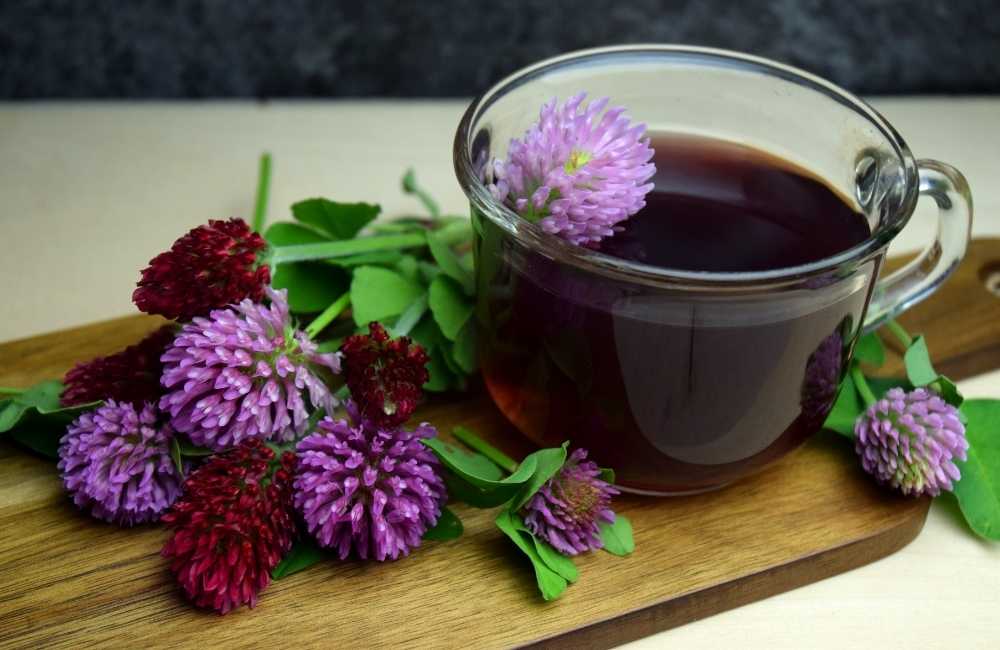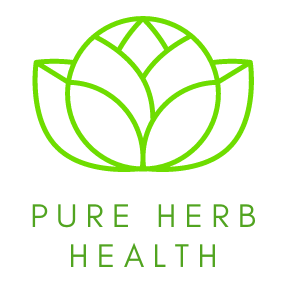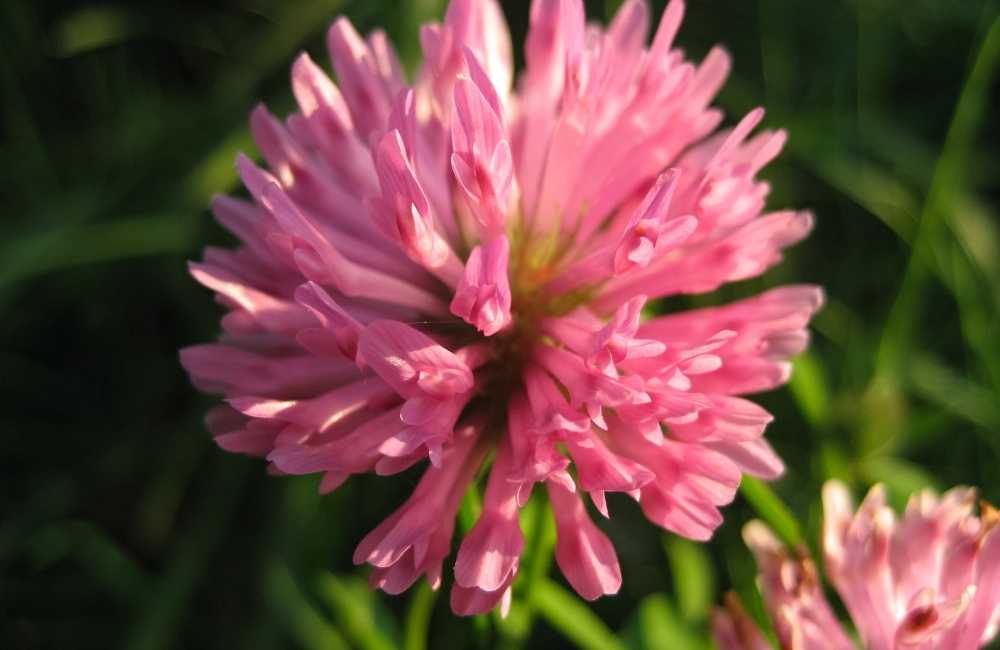Red clover (Trifolium pratense) is a wild, perennial, flowering plant belonging to the legume family just like peas and beans. It can grow up to 15-40cm high.
Red clover is a dark-pink herbaceous plant originating from Europe, Asia, and North Africa. It is now popularly used in South America as a fodder crop to improve soil quality.
Other names include Beebread, Clovone, Cow Clover, Daidzein, Genistein, Isoflavone, Meadow Clover, Wild Clover, etc.
The flowering portion is used decoratively as an edible garnish or extract, and it can be extracted into essential oils. It is also usually dried for therapeutic use.
Traditional Uses of Red Clover
Historically, red clover is a herb used in traditional medicine to treat a wide range of health issues, such as hot flashes, osteoporosis, arthritis, skin and hair disorders, asthma, whooping cough, cancer, and gout.
The Nutritional Content of Red Clover
The benefits are thought to arise from the many nutrients found in its flowers, and they include:
- Calcium
- Chromium
- Magnesium
- Niacin
- Phosphorus
- Potassium
- Thiamine
- Vitamin C
The Phytochemical Contents of Red Clover
Its extracts are rich in phenolic compounds such as flavonoids, phenolic acids, clovamides and saponins. Scientific research determined that the extracts consist of:
- 35.54% Isoflavones
- 1.11% other flavonoids
- 0.06% Pterocarpans
- Less than or equal to 0.03% Coumarins
- Less than or equal to 0.03% Tyramine
Commercial extracts contain high amounts of mildly estrogenic isoflavones: Daidzein, genistein, formononetin and biochanin A.
The general premise supporting use of red clover supplements during menopause is that the isoflavones will act as a natural estrogen replacement in older women having low endogenous estradiol levels and thus alleviate hot flashes and other symptoms.
Health Benefits of Red Clover
Red clover has been widely used as a traditional medicine in the treatment of various health conditions as mentioned earlier in the traditional uses.

However, little research supports these uses. Despite the limited scientific evidence, it is used to treat a variety of conditions:
-
Bone Health
Osteoporosis is a condition in which your bones exhibit low bone mineral density (BMD) and have become weak. In menopausal women, there is a decline in reproductive hormones (estrogen), which can lead to increased bone turnover and a decrease in BMD (Bone Mineral Density).
This herb contains isoflavones, which are a type of phytoestrogen (a plant compound that weakly mimics estrogen in the body). Some research has shown that there is a relationship or connection between isoflavone intake and a decrease in osteoporosis risk but some other research did not collaborate on this, hence the need for more research in this area as there are conflicting results.
-
Menopausal Symptoms
In menopausal women, there are incidences of symptoms that occur due to the low estrogen level at this stage. The most recognizable ones are hot flushes and night sweats.
It was seen in some research that taking about 40-80mg of red clover supplement per day might help to alleviate hot flashes in women with severe symptoms.
It has also shown mild improvements in other menopausal symptoms, such as anxiety, depression, and vaginal dryness.
-
Skin and Hair Health
Red clover extract has been used in traditional medicine to promote skin and hair health. In research, postmenopausal women were given 80mg of red clover extract for 90 days and improvements in hair and skin texture were observed.
In men, however, the extract was applied to the hair for 4 months and there was an increase in the hair growth cycle and a decrease in the hair loss cycle.
All these studies are promising but more research is needed to come up with a conclusion that will be widely accepted and corroborate with the other previous research.
-
Heart Health
Studies have shown that this herb may improve heart health in postmenopausal women. This was demonstrated by the ability of red clover extract to reduce some risk factors for heart disease in postmenopausal women (There was a decrease in LDL (bad) cholesterol, and an increase in HDL (good) cholesterol).
Higher quality and more generalized research are needed before these studies will be adopted for the general population, as it was restricted to postmenopausal women.
-
Cancer
Preliminary research suggests that it may help reduce the risk of prostate cancer. In a lab study, it was discovered that treatment with red clover led to a decrease in prostate-specific antigen (PSA) levels.
Forms or Various Preparations of Red Clover
It is available in a variety of forms, which include:
- Teas: This is prepared from dried flower heads or as some claim, the entire flower for maximum benefits.
- Tinctures
- Tablets
- Capsules
- Liquid extract
- Extracts are standardized with specific amounts of isoflavones.

Caution
It is pertinent to note that sometimes, red clover is the sole ingredient in products. Other times, it is mixed with other herbs. When using commercial products, follow the package instructions carefully.
The widespread use of self-administered isoflavones is somewhat disturbing since much remains to be proven including efficacy and possible side effects.
Possible Side Effects of Red Clover
- Pregnant or breastfeeding women should avoid it.
- Anyone with hormone-sensitive cancers should avoid it.
The reason is that red clover contains isoflavone which has similar activity in the body as the hormone estrogen so unsafe for the above group of persons.
Interactions of Red Clover with Other Drugs
- It has blood-thinning abilities and can increase the effects of anticoagulants and antiplatelet drugs, which are used to prevent blood clots. Avoid taking it with blood thinners like warfarin as it increases the risk of bruising and bleeding and stop taking it at least two weeks before surgery.
- Red clover may interact with birth control pills due to the hormone-like actions of the isoflavones thereby making the birth control pills less effective.
- This herb can cause toxic effects when taken with methotrexate, a drug used to treat certain types of cancer and control severe psoriasis or rheumatoid arthritis. Red clover increases side effects from methotrexate such as vomiting and stomach pain.
- It has been shown to inhibit the binding of estradiol (stronger estrogen)- making it anti-estrogenic thereby reducing the effectiveness of the estrogen pill.
- It might decrease the effects of tamoxifen. Red clover should not be taken when on this medication.
- It contains the chemical genistein, which might slow down how quickly the body gets rid of caffeine, but red clover does not have enough of this chemical to increase the effect of caffeine.
- Some medications are changed and broken down by the liver (Cytochrome P450 3A4 (CYP3A4) substrates). Red clover might change how quickly the liver breaks down these medications. This could change the effects and side effects of these medications.
Considering using this herb? Please do well to consult your doctor first and do not replace your prescription drugs with it.
Dosage
Red clover has most often been used by adults in doses of 40-80 mg by mouth daily for up to one year. Doses vary depending on the specific product used. Speak with your healthcare provider.
Conclusion
A lot of claims have been made about the benefits of red clover but more scientific research is needed to corroborate these. In recent times the supplements have helped a lot of postmenopausal women, persons with hair loss, prostrate issues etc.
All these are from the poll of user reviews conducted by a researcher. Please no matter the condition you want to try red clover on, always contact your health care provider for advice. Thank you.

